Review: Locago
Score:
78%
Ewan Spence takes a look at Locago. A location based mapping application, built in Java. Locago overlays points of interest from sources like Wikipedia, Flickr, and Yahoo!, to help travellers find out more about their surroundings. Despite the quirky interface, Ewan recommends all travellers take a look and show it off to their friends.
Version Reviewed: 0.11.0
Buy Link | Download / Information Link
Sitting alongside my thoughts on check-in based location services, I've also been looking at another angle for using GPS and an internet connection. Drop yourself into a mystery location and ask yourself how you would find out things like: what has happened around you, what that castle is, and which exhibits are in the museum on the horizon. You could ask the locals or look up a tourist guide...
...or you could use your smartphone. It knows exactly where you are, and with that information it should be able to go online and find all that out for you. That's what Locago does.
The Locagao client is now available in the Ovi Store as a free download, and if you do any sort of travelling around Europe and North America, it's worth considering this app. It's not quite at must have levels, but it's very useful.
Drawing on mapping data from either OpenStreetMap or Tele Atlas (now part of TomTom), and powered by Ericsson's Mobile Map api, Locago takes this and shows you the map of your current location, or anywhere else you'd like. On top of this map they place layers of data, through icons and pointers, to highlight where more information is available. This could be from the photo sharing site Flickr, business listings from Yahoo!, points of interest from Wikipedia and a number of other options (have a look at the list on the Locago website).
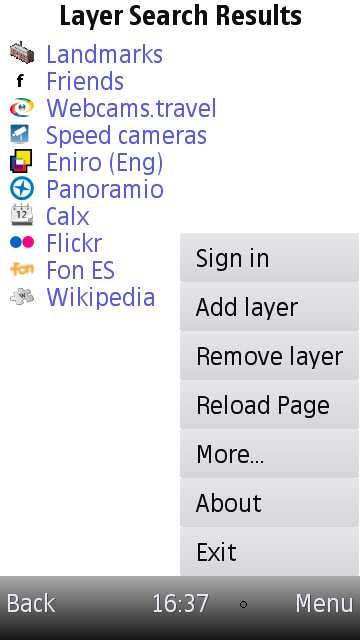
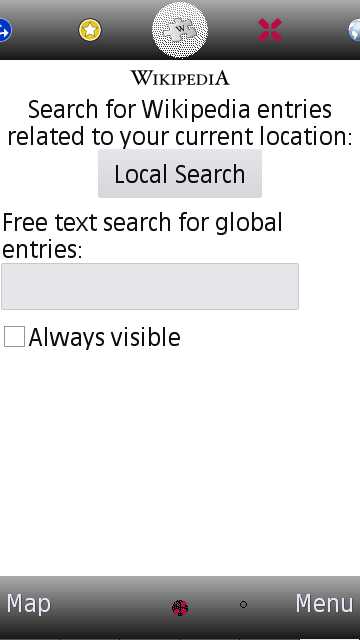
To be honest, Wikipedia is the most fascinating one for me, giving access to a huge amount of curated data for buildings, statues and things around me. It's also the demonstration of choice when meeting friends as it shows off, in a matter of seconds, how useful this application is. While standing in the centre of Edinburgh, the historical buildings are pointed out, alongside some stunning pictures taken by Flickr members.
If this isn't enough for you, Locago allows you to create your own layers, and publish them through their site. Full details on how to do this are available, and while I suspect only a few individuals would take up this offer, it's still nice to have. I suspect that larger event organisers (such as city bound festivals like the Edinburgh Fringe) would be happy to create a file of highlights. It's a smart idea that helps promote the idea of an open system.
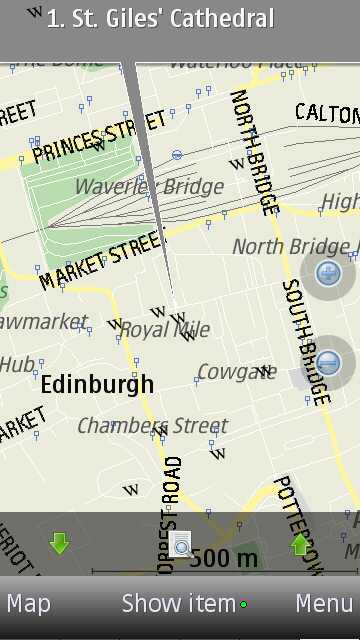
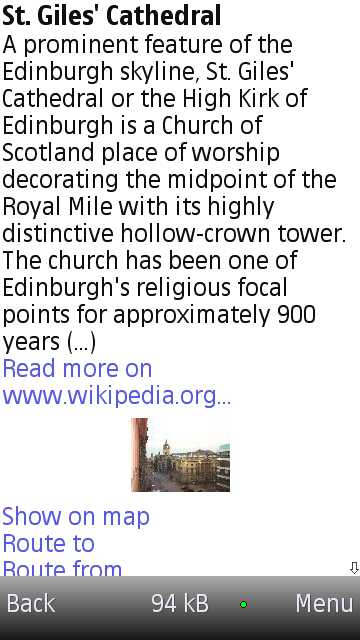
On top of this, you've also got route finding and navigation included in the package, although there is not (yet) turn by turn navigation in the app so you will have to step through manually. Much like Google Maps, you will need to have an active data connection to use the service, there is no offline caching of map data or layers.
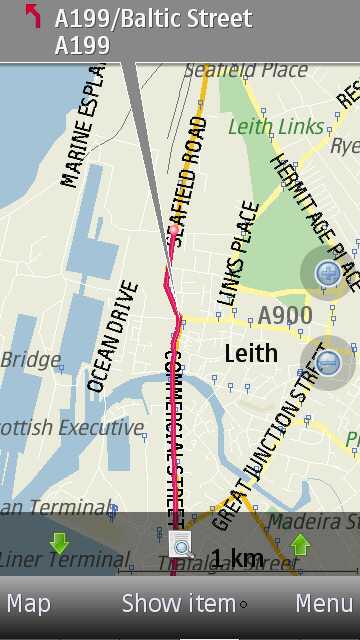
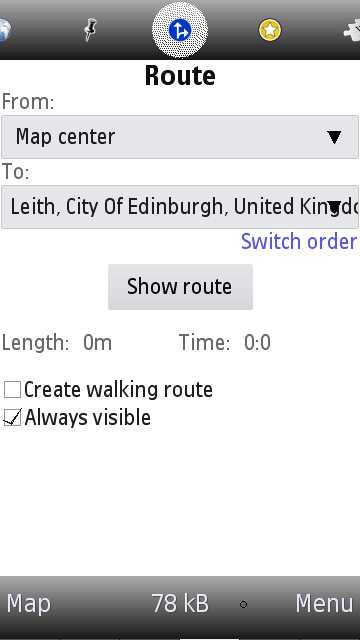
Nokia has placed a huge amount of focus on Ovi Maps, and that's because maps and information on a mobile is a crucial growth area. Locago might look rather plain just now, with a number of quirks. Although that's never stopped a good application and implementation of an idea before. When you compare Ovi Maps and Locago, there's a lot to like in the plucky underdog considering the difference in budget and development time.
It's not pretty, it's not slick and shiny with nice fonts and cute icons, but it get the job done.
One thing that may put you off is that Locago is a Java based application. There's no amazing use of the camera, accelerometers and compass to show you exactly what's going on, this is very much a bundle of layers on top of a regular map. Not as pretty, but it means the service can expand to many more handsets than a standalone C++ app cculd, no matter the smartphone platform that it wishes to target.
It would be a shame to dismiss Locago simply because it is Java. The information it provides is the same as the Altered Reality Gaming (ARG) powered steamrollers, and the simplicity of the interface makes a nice change. There's a lot of reasons to keep an eye on Locago (especially as it's nowhere near the end of its development cycle), and I see no reason to not have it on any phone that does a lot of travelling with its owner.
-- Ewan Spence, July 2010.
Reviewed by Ewan Spence at
